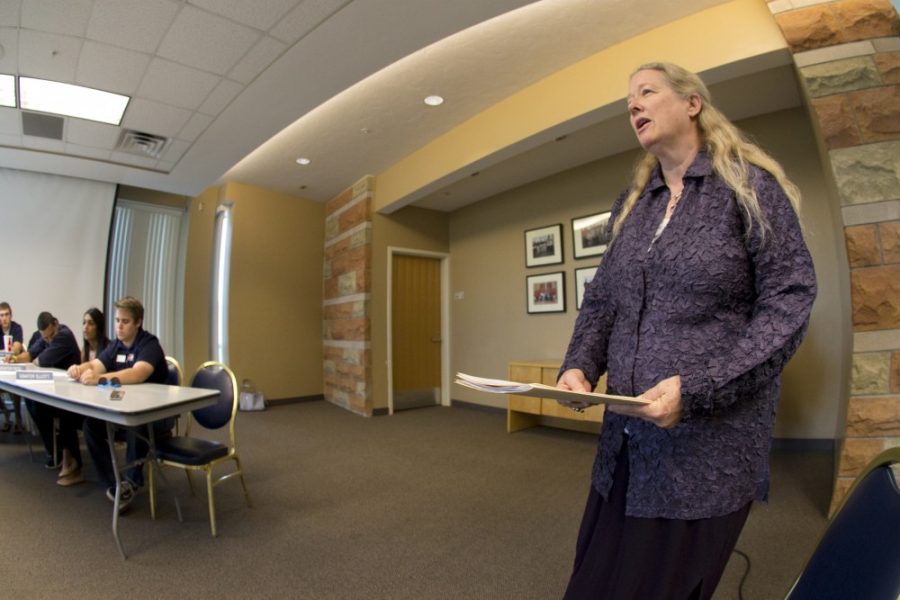Transparency is an issue that many students are concerned about in all facets of the university, from the Honors College to the ASUA Senate.
Both issues — what the Honors College fee goes toward and why senators are changing the Associated Students of the University of Arizona bylaws — were discussed at the senate meeting on Wednesday.
The Honors College fee was implemented two years ago, yet many of the college’s members remain unaware as to what the fee is used for. According to Patricia MacCorquodale, dean of the Honors College, the fee goes toward scholarships, financial aid programs, new courses, additional staff, study abroad programs as well as workshops and programs for students in the college.
Although MacCorquodale explained how the fee was administered, Sen. Chad Travis said he thinks the Honors College needs to be more transparent in letting students know what the fee supports. MacCorquodale responded that the college is working on marketing a formal fee explanation for next year.
Seventeen percent of the fee goes toward financial aid, 30 percent toward adding five more general education honors courses, 11 percent for an additional advisor, 13 percent toward additional honors programs geared at career and professional development and 10 percent for operations management like reduced printing fees and additional computers. The remaining 19 percent funds internships, study abroad scholarships, senior thesis research grant scholarships and scholarships for students to go to conferences.
Students also expressed their concern for lack of transparency within other UA organizations during the meeting. Sen. Blanca Delgado read a letter from a student who has been following recent Senate bylaw changes, which include additional positions and stipends.
The three new positions would be a chief senate administrator, a senate coordinator and senate vice chair. Those positions would be stipended at an estimated total of $3,500.
The statement, written by Miguel Acero, a sociology student, said that adding these positions to regulate how the senate runs and assure individual senators complete their projects is unnecessary because, as senators, they have an obligation to the student body to be responsible and do this anyway.
In the letter to the Senate, Acero wrote, “While members in the ASUA have a nice office, a nice office desk and somewhere to put their belongings, other organizations on campus do not have these luxuries, yet they do more for their clubs and organizations without pay and simply because they are committed to what they signed up to do.”
Sen. Kevin Elliott responded to the letter, saying that something is clearly not working in the Senate and there need to be changes. He added that these new positions could help fix the problem of the Senate allegedly not getting anything accomplished.
“Something is broken and we need to do something about it or else it won’t get fixed,” Elliott said.









